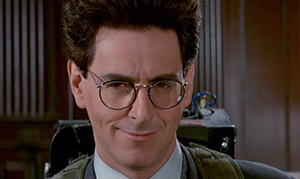
Egon approves
Never fear, science fans, I have several children’s nonfiction projects in the works. But I’ve also been working on my first high fantasy novel, for ages 10-14, and the process has got me thinking a lot about the intersection between reality and make-believe. Here’s how I know I’ve been applying my science brain, even though I’ve now got free license to make stuff up:
10) I can’t use the excuse “because it’s magic” unless it’s at least nominally consistent with physics.
9) My brownies evolved from toadstools. But their role in the story is very small, because I can’t stop picturing the brownies from Willow, and would inevitably plagiarize their awesomeness.
8) My dragons, like some whiptail lizards, are parthenogenetic.
7) They have a symbiotic relationship with dwarves.
6) My rocs, like some real bird species, have a matriarchal, polyandrynous social structure.
5) My villain’s power is partly the result of hybrid vigor.
4) I realized that if my fantasy races were going to be effectively immortal, and yet reproduce, creative solutions to the problem of carrying capacity were going to be required.
3) My salamanders are chemosynthetic, and their colour is determined by the species of thermophiles that share their hotsprings. (Hello Taq! I don’t miss you!)
2) When my naiads (a water-based equivalent to dryads) need to reproduce, the oldest of the females changes sex. Much like frogs. Or Jurassic Park dinosaurs, for that matter.
1) The use of ecology and genetics in fantasy world-building caused me to giggle uncontrollably on more than one occasion.
The thing about fantasy is that it requires the reader to suspend an awful lot of disbelief. The best way to make sure your reader is going along with you is not to strain that suspension any more than necessary. The world must be consistent. The rules must make sense. If they don’t, the writer hasn’t done her job.
Fortunately, creating worlds (though very time consuming), isn’t as hard as it sounds. After all, the real world contains more than enough that’s fantastic to inspire me for years. Dad always knew I’d end up using my PhD for something!
What fantasy worlds had you scratching your head and giving up on the story? Which fantasy worlds seemed realer to you than the one outside your door? What makes that difference for you? This is equal opportunity commenting, so feel free to share examples from books, movies, TV, or anything else you can think of!